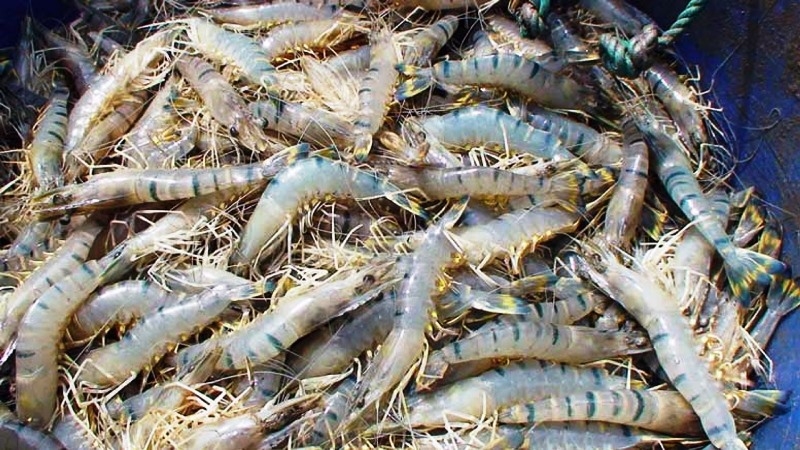- US Faces Pressure as UN Votes on Gaza Ceasefire |
- Prof Yunus includes 4 political leaders in UNGA tour del |
- Tarique calls for vigilance to prevent troubles during Puja |
- Parties divided on constitution order move over July Charter |
- Khulna’s ‘white gold’ shrimp eyes Tk 22,600cr export goal |
Khulna’s ‘white gold’ shrimp eyes Tk 22,600cr export goal

Shrimp, white gold of Khulna. UNB
Khulna, Sept 18 - Shrimp, once known as the ‘white gold’ of Bangladesh’s southwest and a major export from Khulna, has declined due to fierce global competition and the growth of vannamei shrimp farming in neighbouring countries.
Now, after years of stagnation, the sector is showing signs of recovery as the Department of Fisheries has rolled out a series of measures aimed at restoring the industry’s lost luster, and the results are beginning to show.
According to the Export Promotion Bureau (EPB), shrimp exports from Khulna over the last five years totalled Tk 11,300 crore.
Authorities have now set an ambitious goal to double that figure within the next five years.
Department of Fisheries data reveal that the region exported 1,53,388 metric tonnes of fish between FY2020 and FY2025, generating Tk 13,456 crore in revenue. Of this, shrimp accounted for 1,02,339.629 tonnes, bringing in Tk 11,301 crore.
In FY2024-25 alone, Khulna produced 1,23,151.17 metric tonnes of shrimp, with 19,512 tonnes exported — earning Tk 2,499 crore. The shrimp export rate for the region during the year stood at 42.19%.
To boost output, the Khulna office of the Department of Fisheries has adopted several strategic initiatives. These include advanced training in shrimp cultivation for 10,750 farmers, supplying equipment to 7,500 of them, and promoting cluster-based farming to help traditional farmers multiply their yields two- to fivefold.
Demonstrations under ‘Field Days’ are motivating farmers, while biosecurity and hygiene measures are being enforced to ensure better quality. Officials are also encouraging farmers to pursue third-party certification for improved prices in international markets.
Lipton Sardar, Divisional Fisheries Inspection and Quality Control Officer in Khulna, stressed the need for long-term, shrimp-focused projects.
“There needs to be a dedicated policy framework for shrimp, including zoning of shrimp farming areas, infrastructure development, timely supply of disease-free larvae and guaranteed access to quality feed,” he said.
He also highlighted the importance of strict testing of fry, feed, medicines and chemicals, alongside the establishment of a separate staffing structure to oversee production and quality control in shrimp-rich districts.
“Building institutional capacity to diagnose and treat shrimp diseases, while ensuring responsible practices among exporters, is essential to restore buyer confidence,” Sardar added.
Tariqul Islam Zahir, Senior Vice President of the Frozen Foods Exporters Association, said the region once had 63 shrimp processing companies, but declining production and global market demand forced 33 to close.
“Despite increased bank interest rates and rising electricity bills, some companies are still operating. The frozen shrimp sector is now beginning to recover,” he said, urging the government to provide subsidies for power and production costs.
Exporters say shrimp remains vital to the national economy. However, falling demand and prices in Europe, coupled with irregular payments from foreign buyers, have hurt earnings.
Viral outbreaks have further dented production, while the COVID-19 pandemic, the Russia-Ukraine war and domestic political turbulence compounded challenges.
Repeated shipment cancellations pushed many exporters to the brink of collapse. Yet a recent surge in exports has rekindled hope across the industry.
Stakeholders in Khulna believe that, with continued policy support and improved production standards, the ‘white gold’ can reclaim its former glory and secure an even stronger foothold in the global seafood market. - UNB

